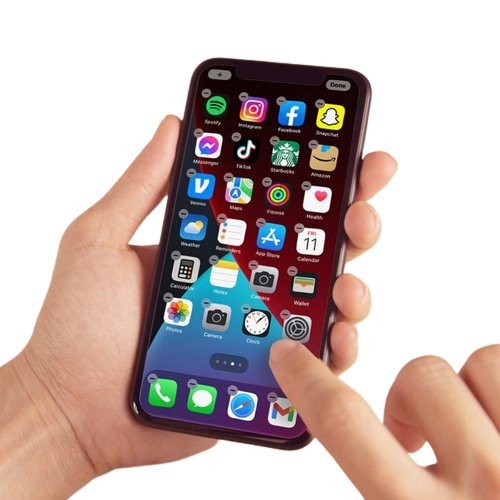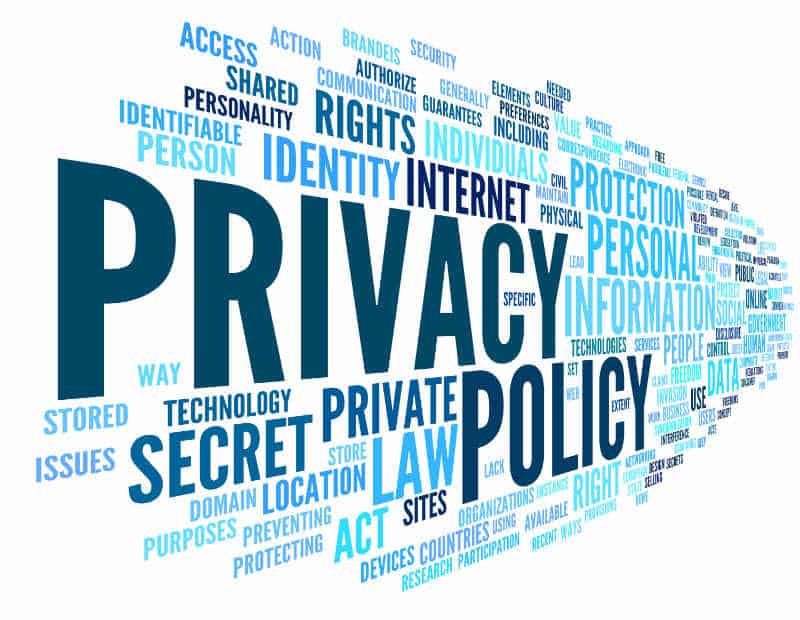Do iPhones have viruses? [2023]
Last updated on December 8th, 2023 in Privacy

With their sleek design, cutting-edge technology, and unparalleled performance, iPhones have become an integral part of our daily lives. From capturing precious moments to staying connected with loved ones, these devices have revolutionized the way we communicate and enjoy digital content. However, amidst all the convenience and innovation lies a nagging question that often plagues iPhone users: Do iPhones have viruses?
In this blog post, we delve into the world of iPhone viruses to separate fact from fiction. We’ll debunk common misconceptions, shed light on iPhone security measures, provide tips on protecting your device from potential threats, and equip you with knowledge about signs that may indicate your beloved iPhone has fallen victim to a virus.
So grab your cup of coffee or tea as we embark on this journey to demystify iPhone viruses once and for all! It’s time to arm yourself with information and ensure your precious device remains safe against any lurking digital dangers. Are you ready? Let’s dive in!
Table of contents

There are several common misconceptions surrounding the topic of iPhone viruses.
One misconception is that iPhones are immune to viruses, but this is simply not true. While it’s true that iOS has built-in security features that make it more difficult for viruses to infiltrate the system, they are not completely impervious.
Another misconception is that only jailbroken iPhones can get infected with viruses. While it’s true that jailbreaking an iPhone can potentially expose it to more security risks, even non-jailbroken iPhones can still be vulnerable. This is because hackers are constantly finding new ways to exploit vulnerabilities in operating systems.
Some people also believe that Apple’s strict app review process ensures a virus-free App Store. While Apple does have stringent guidelines for app developers and conducts thorough reviews before allowing apps into the store, malicious apps can sometimes slip through the cracks.
It’s also important to debunk the myth that antivirus software is unnecessary on an iPhone. Many people assume that since iPhones have strong built-in security measures, they don’t need additional protection. However, having antivirus software installed on your device adds an extra layer of defense against potential threats.

The truth about iPhone security and viruses is that while no device is completely immune to malware, iPhones are generally more secure compared to other mobile platforms. Apple’s strict app review process ensures that malicious apps are less likely to make it onto the App Store. Additionally, iOS has built-in security features such as sandboxing and data encryption, which provide an extra layer of protection.
However, this doesn’t mean that iPhones are invulnerable to viruses. Although rare, there have been instances where iPhones were infected with malware through compromised websites or phishing attacks. This highlights the importance of practicing safe browsing habits and being cautious when clicking on unfamiliar links or downloading suspicious files.
Apple also regularly releases software updates for iOS, which not only introduce new features but also address any security vulnerabilities that may exist. It’s crucial to keep your iPhone up-to-date with the latest software version to ensure you have the most recent security patches applied.
To further protect your iPhone from potential threats, it’s advisable to install a reputable antivirus or antimalware app from the App Store. These apps can scan your device for any suspicious activity and help mitigate any risks.
While iPhones do have a higher level of security compared to other devices, they are not entirely impervious to viruses. By following best practices like staying vigilant online and keeping your device updated with the latest software versions, you can significantly minimize the risk of encountering malicious threats on your iPhone.
 With the increasing prevalence of technology in our daily lives, it’s important to take steps to protect our devices from potential threats. While iPhones are known for their security features, it is still possible for them to be vulnerable to viruses. To ensure your iPhone stays protected, here are some tips on how to safeguard against viruses.
With the increasing prevalence of technology in our daily lives, it’s important to take steps to protect our devices from potential threats. While iPhones are known for their security features, it is still possible for them to be vulnerable to viruses. To ensure your iPhone stays protected, here are some tips on how to safeguard against viruses.
1. Keep Your Software Updated: Regularly updating your iPhone’s software is crucial in keeping it secure. These updates often include patches and fixes for any vulnerabilities that may have been discovered.
2. Enable Automatic Updates: Enabling automatic updates ensures that you never miss an important security patch or update. This way, your iPhone will always have the latest protection against potential threats.
3. Be Mindful of App Downloads: Only download apps from trusted sources like the Apple App Store. Avoid downloading apps from unknown websites or third-party app stores as they may contain malware or viruses.
4. Use Strong Passwords: Protect your device by using strong and unique passwords for all accounts linked to your iPhone, including iCloud and email accounts.
5. Install a Reliable Antivirus App: Consider installing a reputable antivirus app specifically designed for iPhones which can detect and remove any potential viruses or malware on your device.
Remember, prevention is key when it comes to protecting your iPhone from viruses! By following these simple steps, you can enjoy a safe and secure digital experience with your beloved device

Signs that your iPhone may have a virus can vary, but there are some common indicators to watch out for. One sign is a sudden decrease in performance. If your iPhone starts running slower or apps take longer to load, it could be a sign of malware infecting your device.
Another red flag is unusual battery drain. If you notice that your iPhone’s battery is draining faster than usual, even with normal usage patterns, it could be due to a virus running in the background and consuming extra power.
Pop-up ads appearing on your screen when you’re not using any specific app can also indicate the presence of malware. These ads often appear out of nowhere and can be quite intrusive.
If you start noticing unfamiliar apps on your home screen or if existing apps suddenly behave strangely or crash frequently, these could also be signs of an infected device.
Unexplained data usage is another potential indication of a virus on your iPhone. If you see significant data consumption even when you haven’t been actively using data-intensive apps or browsing the internet extensively, it’s worth investigating further.
If you receive unexpected text messages containing suspicious links or attachments from unknown senders, exercise caution as they might contain harmful content that can infect your device.
Keep in mind that experiencing one or two of these signs doesn’t necessarily mean that your iPhone has a virus. However, if multiple signs persist over time and affect the overall performance and functionality of your device consistently, it’s advisable to take action to protect against potential threats.
Discovering that your beloved iPhone might have a virus can be quite unsettling. But fear not, as there are steps you can take to mitigate the damage and restore your device’s security.
It is essential to disconnect from any Wi-Fi or cellular network immediately. This will help prevent further spread of the virus and protect your personal data from being compromised. Next, you should close all running apps on your iPhone by double-clicking the home button (or swiping up from the bottom for newer models) and swiping away each app’s preview window.
Once you’ve disconnected and closed all active applications, proceed with updating your iOS software to its latest version. Apple frequently releases updates that include bug fixes and enhanced security measures which can help eliminate viruses or vulnerabilities.
If updating doesn’t resolve the issue, consider using reputable antivirus software specifically designed for iPhones. These tools can scan for malicious files or programs that may have infiltrated your device.
In extreme cases where none of these steps work, contacting Apple Support or visiting an authorized service center would be advisable. Their experts possess specialized knowledge in dealing with complex malware infections and can provide appropriate solutions tailored to your situation.
Remember, prevention is better than cure when it comes to viruses on iPhones. Stay vigilant by practicing safe browsing habits, avoiding suspicious links or downloads, and regularly backing up your important data.
Use VPN for iPhone to make sure you’re as protected as you can.
By following these steps diligently and staying informed about potential threats in cyberspace, you’ll empower yourself against future attacks while enjoying peace of mind regarding the safety of your cherished iPhone!
In this digital age, it’s essential to stay vigilant when it comes to the security of our smartphones. While iPhone viruses may not be as prevalent as their counterparts on other platforms, they are still a potential threat. By being aware of common misconceptions, understanding the truth about iPhone security, and taking proactive measures to protect your device, you can minimize the risk of falling victim to an iPhone virus.
Remember that iPhones are designed with robust security measures in place to keep your data safe. However, no system is foolproof, and staying informed is key.
Stay up-to-date with the latest news and developments regarding iPhone security by following reputable sources such as Apple’s official announcements or well-known tech websites.